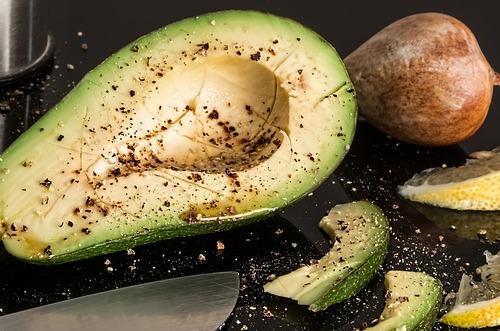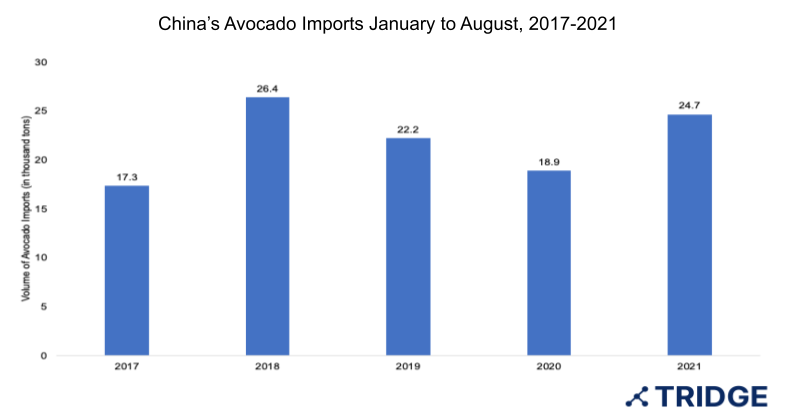China’s Avocado Imports from Mexico Increase by Over 200% Despite Several Challenges

With rapidly growing demands for avocados in China, the country has become a go-to lucrative market for avocado-exporting countries. In 2020, China was the 11th largest avocado importing country with avocado imports worth USD 71 million. The domestic market had imported avocados from Peru, Chile, New Zealand, and Mexico and a small volume of local Yunnan avocados. According to the latest data released by the General Customs Administration of China, the aggregate volume of avocados imported during the first 8 months of 2021 recorded a year-on-year of 30.68% compared to 2020.

Source: ITC Trademap. HS Code: 080440
The majority of imports were driven by the largest avocado production country - Mexico. The country delivered a whopping 5,539 metric tons of avocados to China during this period and China occupied 22.5% of total import volume shares. Mexico was one of the first countries that was allowed to export avocados to China, leading Chinese consumers to become very fond of the Mexican varieties. The volume of avocado imports from Mexico increased by 207% in the first eight months of 2021 even though the trading process faced several challenges due to limited logistics. Issues in logistics were coupled with the deterioration of avocado’s quality caused by the long-distance travel time between Mexico and China.Shipments between Mexico and China have become very unreliable since the beginning of the pandemic in 2020. Shipping schedules are unstable, resulting in Chinese importers having to wait for days until the arrival of their produce. This has resulted in unplanned deliveries which resulted in a sudden rise in supply volume, impacting domestic prices. Furthermore, avocado importers, wholesale traders, and distributors struggle to manage their storage space and stabilize the market prices. In order to mitigate these challenges of importing from Mexico, China has started opening up its market to other avocado-producing countries.
China is focusing on importing from countries that offer optimization of distribution, cost-saving packaging, and timely deliveries. In 2020, Colombia was also permitted to export avocados to China, a little after New Zealand obtained permission to export avocados to the Chinese market in 2018. Of the newly added markets, New Zealand has been seen as the most promising candidate, given its ample supply of avocados this year and its geographical proximity. The Chinese avocado market has been growing at a very fast pace for the last few years and the outlook for 2022 remains positive. As the number of health-conscious adults and trend-sensitive millennials grows in China, the demand for avocados is set to increase even rapidly. With China’s access to new markets, expectations for Chinese avocado imports in 2022 are reaching new heights.
Sources
- Fresh Plaza. “Global Overview of Avocados.”
- Fresh Plaza. “Market analysis of imported avocados in the Chinese market.”
- ITC Trademap. HS Code: 080440






